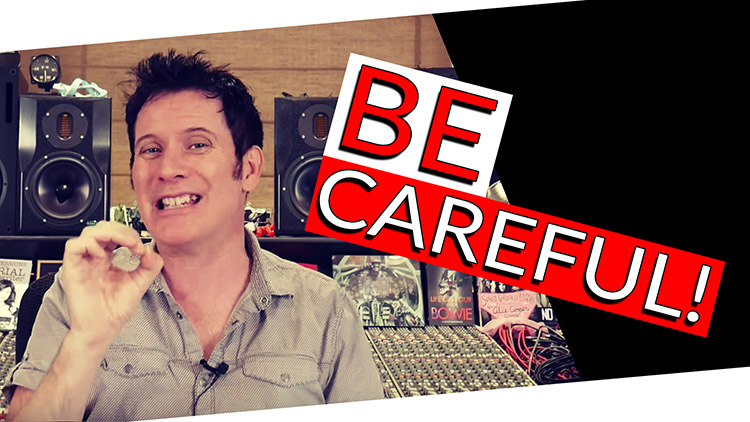FAQ Friday is our weekly episode where I answer your most frequently asked questions! How do you get your question answered? Leave thought provoking, conversation starting questions or comments on the videos! If you’ve been wondering about something, ask away!
We have a ton of great questions this week, but this one was absolutely spectacular:
How do you decide whether or not to give advice to an artist which might help them in the long run but could inhibit their performance in the session you’re recording?
This is a really good question. Firstly, the question itself is very insightful. As a producer, your job is to encourage the artist and to get the best performance. Pointing something out that they’re unable to fix at the moment can take them out of the zone and derail a session. If they can’t fix it at that moment, why are you brining it up?
I think this is a great metaphor for life. For instance when you’re with your significant other, your family, or your friends, pointing out someone’s inadequacy is not helpful!
When it comes to singing, save that information until later. You should be getting the best performance that you can, and if that means you’re fixing it a little bit afterwards that’s fine! It is your job to get the best out of the artist, but it is also a big part of your job to help them get better! However, you need to know when to voice that.
I don’t point things out during a session if I know it’s unfixable. After the vocal session, I’ll talk about things that could make it better, and maybe the artist come back the next day with a little bit more understanding. But it’s always a gradual process to grow.
I highly recommend that you know when you should be encouraging and when you should be pointing out things to improve. Like you’re suggesting, some things are not overnight fixes. Sometimes they’ll need to go away and work with a vocal coach for 6 months. If that’s something you’re going to tell the artist, then tell them at the end of the session. But telling them in the middle of a vocal track is not going to help.
During this episode of FAQ Friday I answer the following questions:
• Is sidechaining compression to dip volumes the same as Volume Automation?
• is it possible to turn a Bad song into good only by good sound production of a song ? Or anyway success of any great song depends on good music and musicians professionalism?
• For someone trying to learn to play guitar, would you recommend thinner or thicker strings?
• When do you consider something as wrong and when do you consider something as artistic preference?
